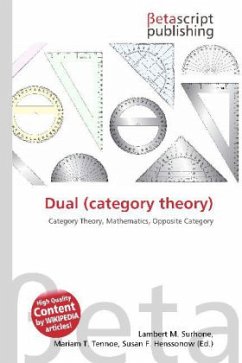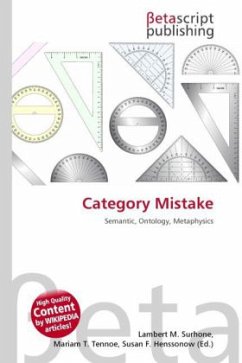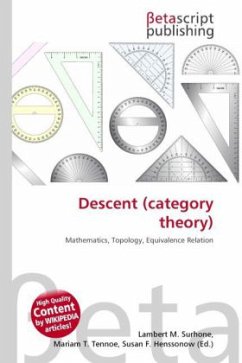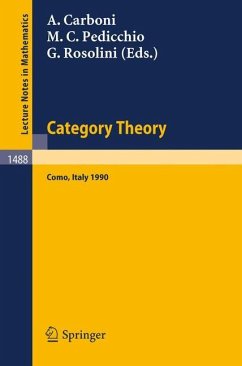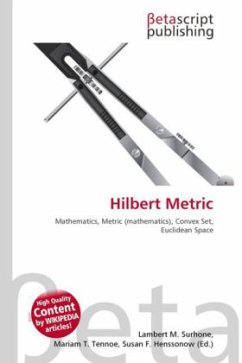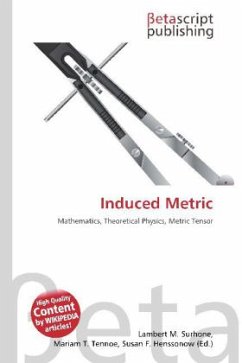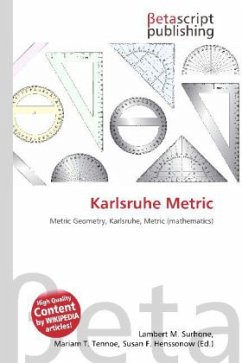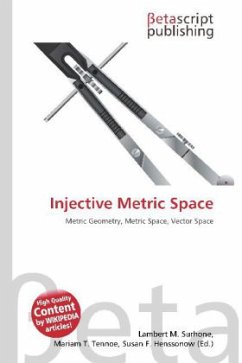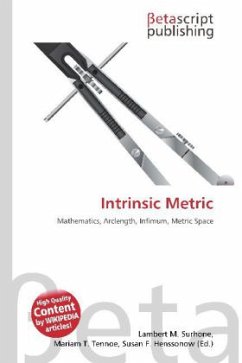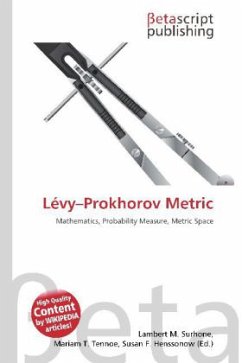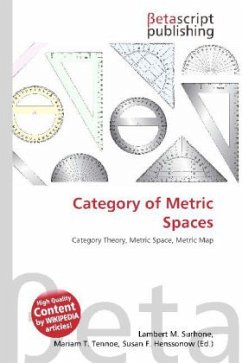
Category of Metric Spaces
Versandkostenfrei!
Versandfertig in 6-10 Tagen
19,99 €
inkl. MwSt.

PAYBACK Punkte
10 °P sammeln!
Please note that the content of this book primarily consists of articles available from Wikipedia or other free sources online. The category Met, first considered by Isbell (1964), has metric spaces as objects and metric maps or short maps as morphisms. This is a category because the composition of two metric maps is again metric. The empty set (considered as a metric space) is the initial object of Met; any singleton metric space is a terminal object. There are thus no zero objects in Met. The product in Met is given by the supreme metric mixing on the cartesian product. There is no coproduct...
Please note that the content of this book primarily consists of articles available from Wikipedia or other free sources online. The category Met, first considered by Isbell (1964), has metric spaces as objects and metric maps or short maps as morphisms. This is a category because the composition of two metric maps is again metric. The empty set (considered as a metric space) is the initial object of Met; any singleton metric space is a terminal object. There are thus no zero objects in Met. The product in Met is given by the supreme metric mixing on the cartesian product. There is no coproduct. We have a "forgetful" functor Met Set which assigns to each metric space the underlying set, and to each metric map the underlying function. This functor is faithful, and therefore Met is a concrete category.



